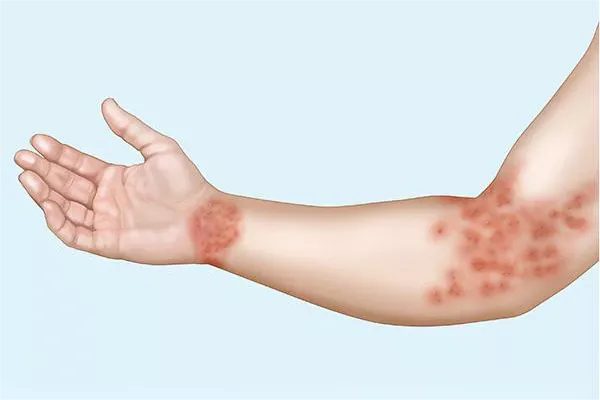Nummular eczema, also known as discoid eczema or nummular dermatitis, is a chronic inflammatory skin condition characterized by coin-shaped lesions that can be intensely itchy and inflamed. While the exact cause of nummular eczema remains unclear, various factors are known to exacerbate the condition, making it crucial for individuals affected by it to understand these triggers to effectively manage and alleviate symptoms. In this article, we delve into the factors that can worsen nummular eczema, offering insights into how to minimize their impact on the condition.
Understanding Nummular Eczema
Before delving into what exacerbates nummular eczema, it’s essential to have a basic understanding of the condition itself. Nummular eczema typically appears as round or oval-shaped patches of inflamed skin, often ranging in size from a few millimeters to several centimeters in diameter. These lesions can be red, scaly, and may ooze or crust over, leading to discomfort and sometimes pain.
While the exact cause of nummular eczema remains elusive, several factors are believed to contribute to its development. These include genetic predisposition, environmental triggers, impaired skin barrier function, and immune system dysregulation. Additionally, dry skin, stress, and certain allergens or irritants can exacerbate symptoms, making it essential for individuals with nummular eczema to identify and avoid these triggers.
Triggers and Aggravating Factors
1. Dry Skin: One of the most significant contributors to nummular eczema flare-ups is dry skin. When the skin lacks sufficient moisture, it becomes more susceptible to irritation and inflammation, leading to worsening of eczema symptoms. Therefore, maintaining proper skin hydration through regular moisturization is crucial for managing nummular eczema.
2. Environmental Factors: Exposure to certain environmental factors can exacerbate nummular eczema. Cold, dry weather tends to worsen symptoms, as low humidity levels can further deplete the skin’s moisture, leading to increased dryness and irritation. Similarly, excessive heat and sweating can also trigger flare-ups, as sweat can irritate already inflamed skin. Protecting the skin from extreme temperatures and maintaining a comfortable indoor environment can help mitigate these triggers.
3. Allergens and Irritants: Certain allergens and irritants can exacerbate nummular eczema symptoms by triggering an inflammatory response in the skin. Common allergens include pollen, dust mites, pet dander, and certain foods, while irritants such as harsh soaps, detergents, fragrances, and chemicals found in skincare products can also aggravate the condition. Identifying and avoiding these triggers can help reduce the frequency and severity of flare-ups.
4. Stress and Anxiety: Psychological stress and anxiety have been linked to exacerbations of various skin conditions, including eczema. Stress can weaken the immune system and disrupt the skin’s barrier function, making it more susceptible to inflammation and irritation. Additionally, stress-induced scratching can further damage the skin, leading to worsening of eczema symptoms. Therefore, stress management techniques such as mindfulness, relaxation exercises, and therapy can be beneficial for individuals with nummular eczema.
5. Scratching and Friction: Persistent scratching and friction can exacerbate nummular eczema by damaging the skin’s barrier and triggering inflammation. While scratching may provide temporary relief from itching, it can ultimately worsen symptoms and prolong healing. To minimize scratching, it is essential to keep the nails short and to use gentle moisturizers or anti-itch creams to soothe the skin. Wearing soft, breathable fabrics and avoiding tight clothing can also reduce friction and irritation.
6. Skin Infections: Bacterial or fungal infections can complicate nummular eczema and exacerbate symptoms. Scratching can create small breaks in the skin, providing an entry point for bacteria or fungi to infect the affected areas. These infections can cause additional inflammation, redness, and discomfort, requiring prompt medical treatment with antibiotics or antifungal medications. Practicing good hygiene, keeping the skin clean and dry, and promptly treating any cuts or abrasions can help prevent secondary infections.
Conclusion
Nummular eczema is a chronic skin condition characterized by coin-shaped lesions that can be intensely itchy and inflamed. While the exact cause of nummular eczema remains unclear, various triggers and aggravating factors have been identified, including dry skin, environmental factors, allergens, stress, scratching, and skin infections. Understanding and avoiding these triggers is essential for effectively managing nummular eczema and minimizing flare-ups. By adopting proper skincare practices, identifying and avoiding potential triggers, and seeking medical treatment when necessary, individuals with nummular eczema can improve their quality of life and achieve better control over their symptoms.























